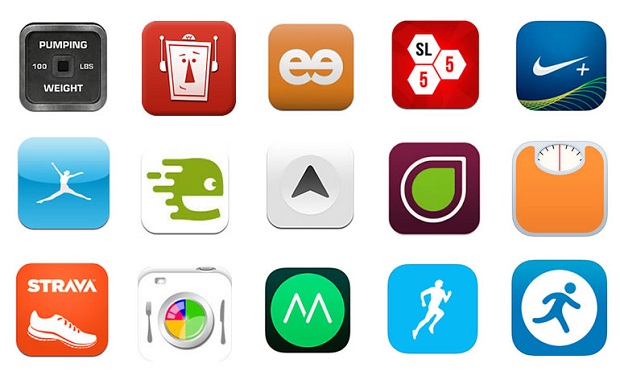Almost a third of UK adults use health apps every week, with 21% doing so instead of visiting personal trainers or gyms, according to new research.
New research among more than 2,000 UK adults by WeMa Life has uncovered the number of people using technology to examine, manage and improve their health.
It found:
- 28% of people use health apps on a weekly basis, up from 23% a year ago
- The figure rises to 44% among millennials (18-34 year olds)
- 61% of users say health apps help them to incorporate healthier practices, exercise techniques or mental health tips into their daily life
- 25% also own a piece of wearable technology to monitor or manage their health
- 9% of people have used apps or wearable tech to detect a medical condition or health issue
- A further 12% use apps, wearable devices or online tools to monitor an on-going health problem
- A fifth (21%) of UK adults say they now use online videos, apps and wearable tech instead of going to the gym or seeing personal trainers
- Almost half (46%) think technologies are going to reduce the UK’s reliance on public healthcare, cutting down how often we need to see medical professionals
- This reflects a growing trend of Brits opting to self-manage their health and wellbeing – 39% of Brits favour using search engines over going to see a pharmacist or GP
Health apps, online tools and wearable technologies are having a significant impact on the way people across the UK public are managing and improving their own health, new research by WeMa Life has found.

The HealthTech platform commissioned an independent survey among more than 2,000 UK adults to reveal the impact of new tech on the health and wellbeing sector. It found that 28% of people currently use health apps on a weekly basis, up from 23% a year ago. Furthermore, the figure rises to 44% among millennials (18-34 year olds).
During the research, health apps were defined as an application on a smartphone or tablet that helps someone monitor or improve their health. Uses of such apps can include: analysing exercise and fitness sessions; tracking or advising on food and drink intake; monitoring sleeping patterns; helping with mental health issues; or communicating with medical professionals to book their services or seek their advice.
WeMa Life’s research found that 61% of health app users say they use them to easily incorporate healthier practices, exercise techniques or mental health tips into their daily life. It comes as Deloitte predicts the global digital health – or HealthTech – market is due to reach a value of £43 billion in 2018.
Elsewhere, the study showed that 25% of UK adults own a piece of wearable tech to monitor or manage their health. Moreover, a fifth (21%) of UK adults say they now use online videos, apps and wearable tech instead of going to the gym or seeing a personal trainer.
The survey also uncovered more notable findings. It revealed that 9% of people in the UK have used apps or wearable tech to detect a medical condition or health issue, while a further 12% use apps, wearable devices or online tools to monitor an on-going health problem.
Reflecting the value of these new technologies in improving how people can manage their health, 46% of respondents said they think new tech is going to reduce the UK’s reliance on public healthcare, cutting down how often we need to visit a GP or hospital. This reflects a broader trend of Brits opting to self-manage their health, with 39% of those surveyed already stating that they use search engines over going to see a pharmacist or GP.
Rohit Patni, CEO and co-founder of WeMa Life, commented: “The HealthTech industry has grown at pace in recent years – there are now a plethora of apps, devices and online platforms that empower people to lead happier and healthier lives. Today’s research reveals just how far-reaching this trend has been, with people now relying on these tools instead of traditional methods of detecting, monitoring or treating health issues.
“Not only does HealthTech improve people’s knowledge of their mental or physical wellbeing, but it’s also vital in connecting consumers with health and care businesses or medical professionals. In doing so, it’s clear that apps and online tools now have an important role to play in bridging gaps and filling cracks within the wider healthcare sector.”
WeMa Life

